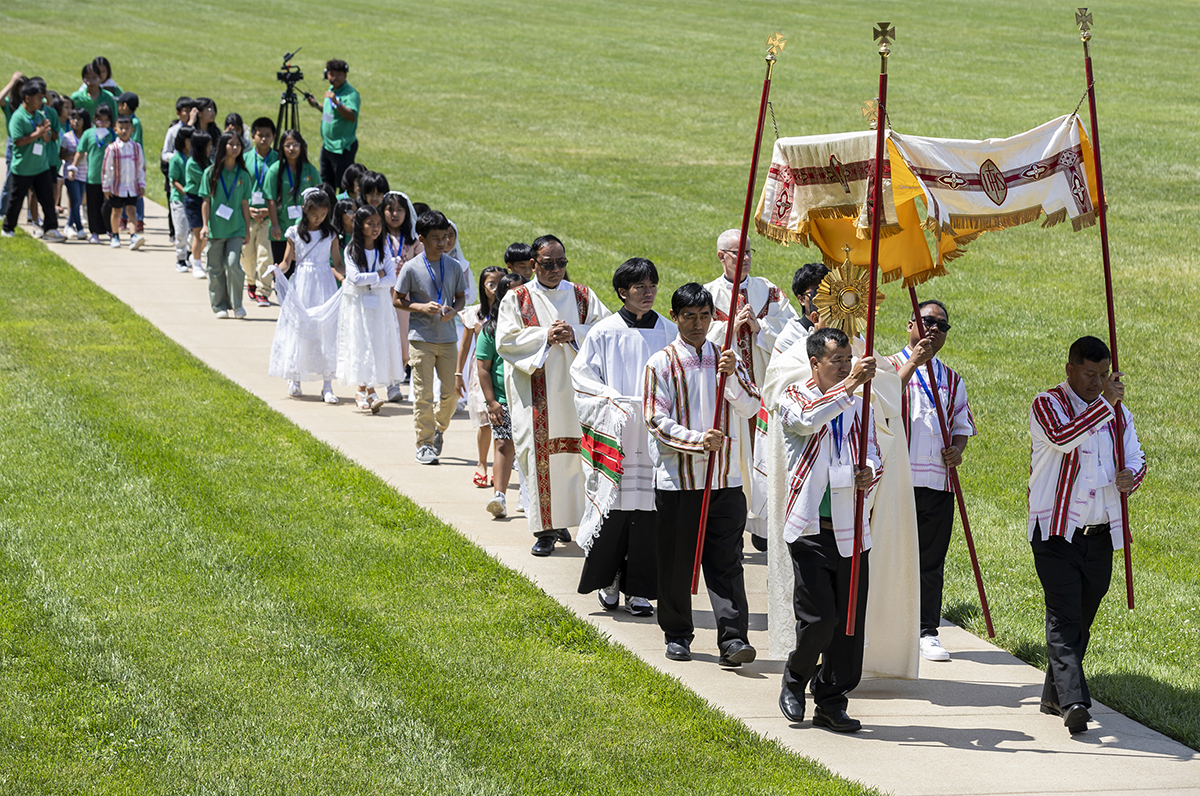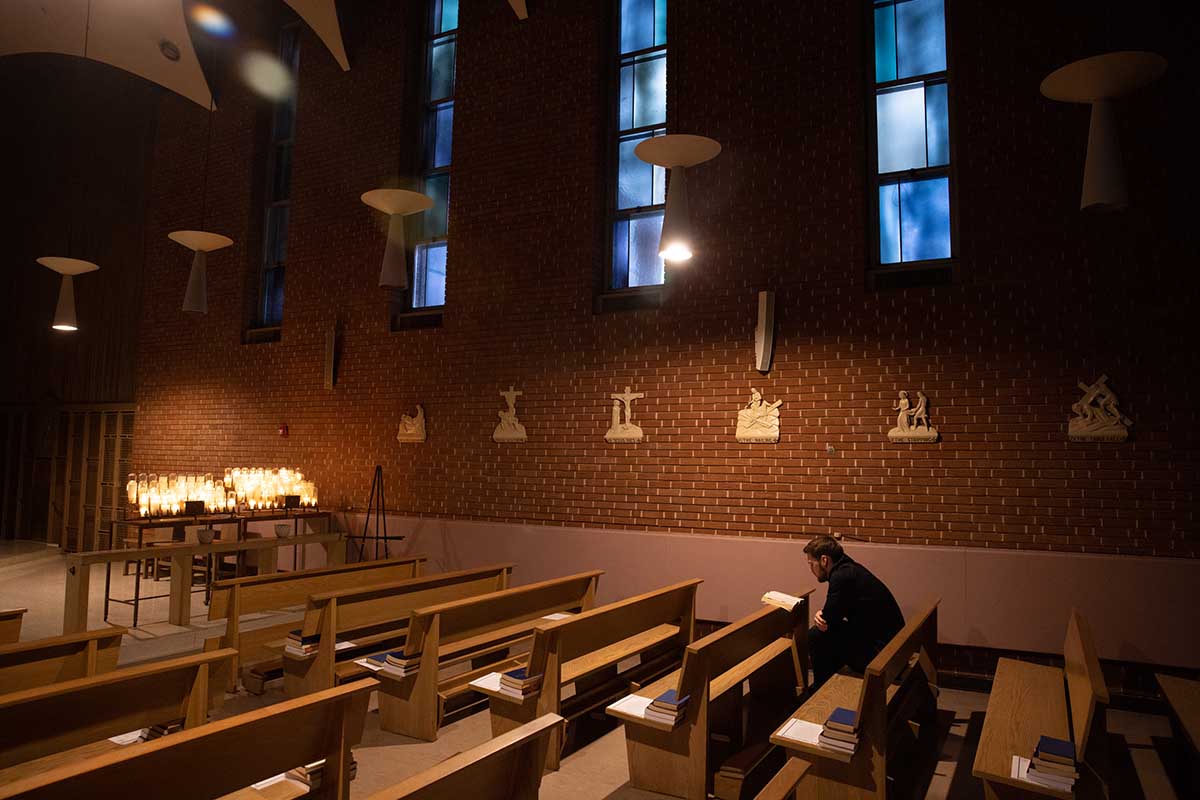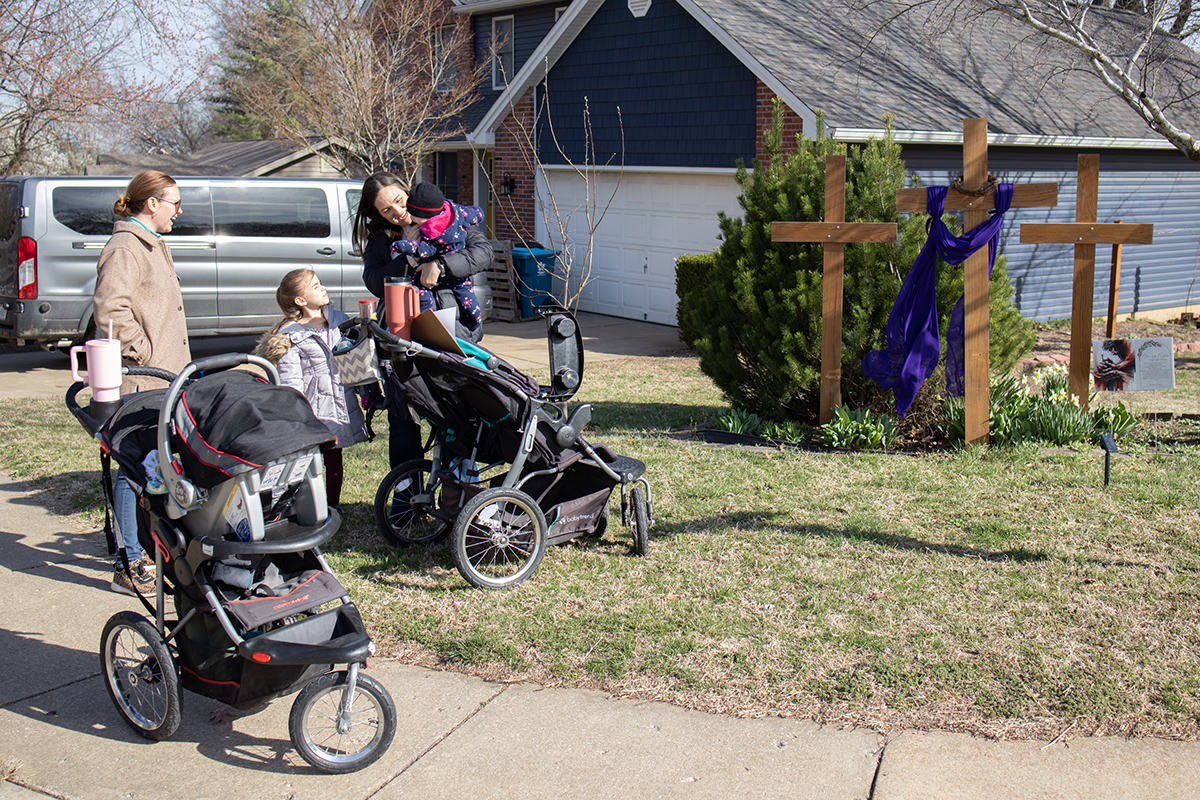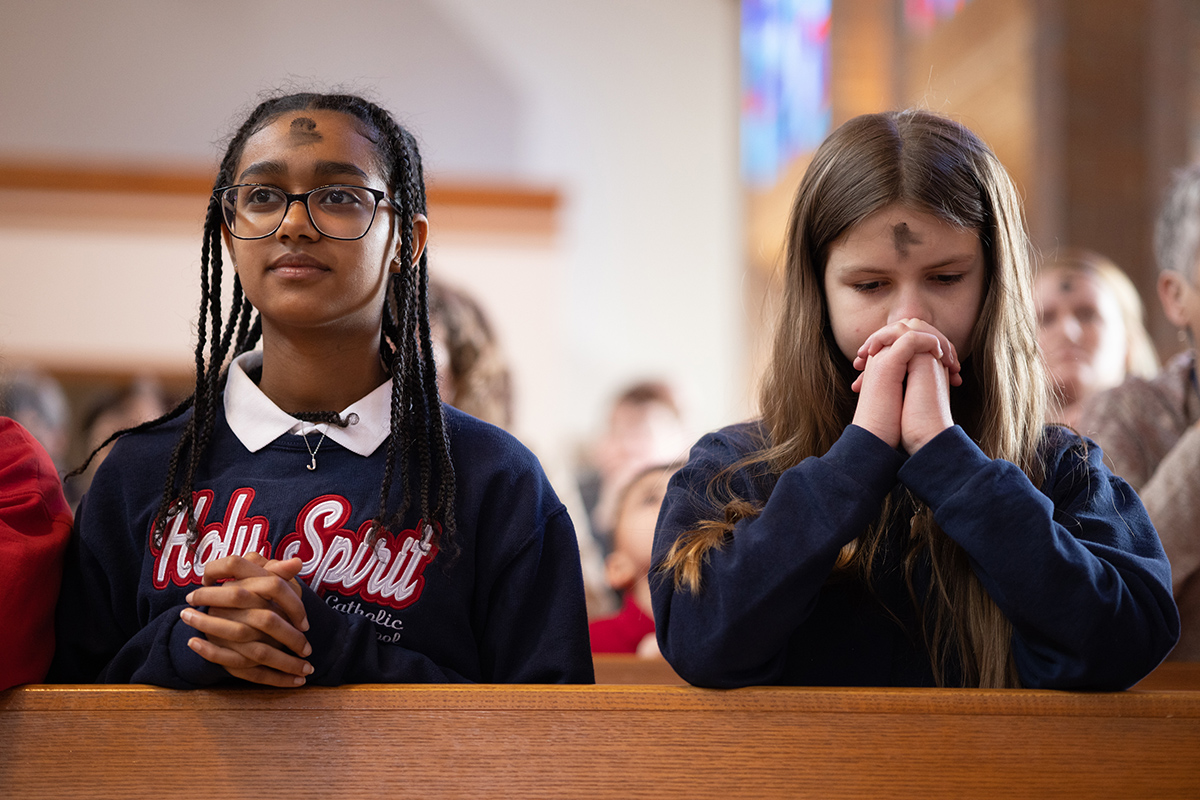A ‘love-letter from God’
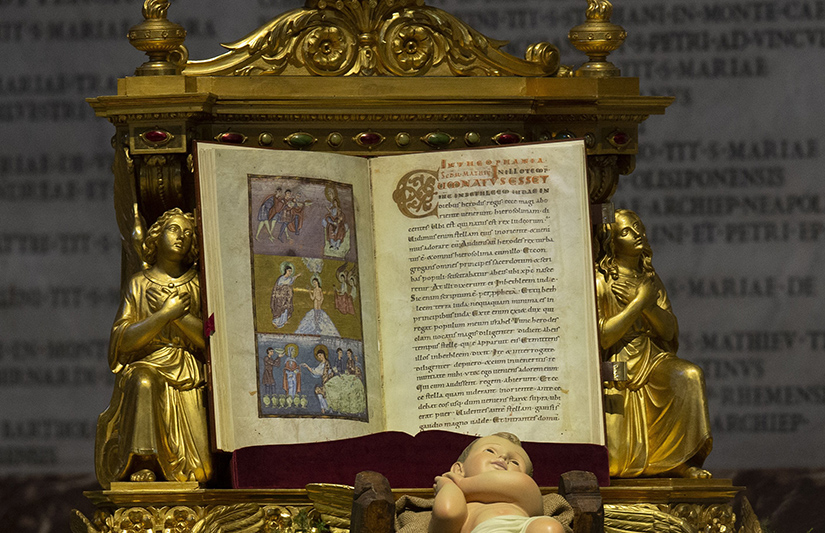
Sunday of the Word of God is a day devoted to the celebration, study and dissemination of the Bible
God’s Word is “a love letter, written to us by the one who knows us best. In reading it, we again hear His voice, see His face and receive His Spirit,” Pope Francis wrote in a homily for Mass on the Sunday of the Word of God in 2021. This year, the Sunday of the Word of God will be celebrated on Jan. 23.
The Sunday of the Word of God was instituted in 2019 by the pope as a day devoted to the celebration, study and dissemination of the Bible.

He wrote in “Aperuit Illis,” the document instituting the celebration, “that devoting a specific Sunday of the liturgical year to the word of God can enable the Church to experience anew how the risen Lord opens up for us the treasury of His word and enables us to proclaim its unfathomable riches before the world.”
In celebrating God’s Word on the Sunday, the pope emphasized that it should not be seen as a yearly event, but rather a daily event. “We urgently need to grow in our knowledge and love of the Scriptures and of the risen Lord, who continues to speak His Word and to break bread in the community of believers,” Pope Francis wrote. “For this reason, we need to develop a closer relationship with sacred Scripture; otherwise, our hearts will remain cold and our eyes shut, struck as we are by so many forms of blindness.”
As we approach the Sunday of the Word of God this year, we can find daily ways to enrich our familiarity with the Bible and grow deeper in our relationship with Christ.
Lectio and visio divina
Two practices of reading Scripture — lectio divina, meaning divine reading; and visio divina, or divine seeing — help us to contemplate the Scripture and apply it to our lives as we’re living at this moment.
A central element of Benedictine spiritual formation is the practice of lectio divina — the prayerful reading of Sacred Scripture with the “ears of the heart” and the eyes of faith. In this method of reading the Bible, the words on the page are recognized as God’s words to a person’s life at this very moment — words that provoke a response back to God.
Lectio divina takes a person beyond the words on the page. The four basic steps include lectio, meditatio, oratio and contemplatio — or read, meditate, pray and contemplate.
This way of prayer is one based on contemplation of the Scriptures through use of imagination, visualizing and entering into the scenes as God leads and inspires us.
The concept of scriptural reflection and interpretation goes back to Origen of Alexandria, a third-century Christian scholar, ascetic and theologian. St. Ambrose also taught the practice to St. Augustine. The monastic practice was first established in the sixth century by St. Benedict and was then formalized as a four-step process by the Carthusian monk Guigo II during the 12th century.
In the 20th century, the constitution Dei verbum of the Second Vatican Council recommended lectio divina to the general public. Its importance was affirmed by Pope Benedict XVI: “As a strong point of biblical ministry, lectio divina should therefore be increasingly encouraged, also through the use of new methods, carefully thought through and in step with the times. It should never be forgotten that the Word of God is a lamp for our feet and a light for our path.”
The practice of praying with visual images is called visio divina or divine seeing. It is adapted from lectio divina.
There are six steps: Listen and meditate on Scripture; see with eyes of faith as you look at the illuminations; pray to God, contemplate the Holy Spirit’s movements and reflect on how to become further Christ-like.
Read more about lectio and visio divina at https://stlreview.com/3fCoQU4
Pray for Christian unity
It isn’t a coincidence that the Sunday of the Word of God falls within the Week of Prayer for Christian unity.
Pope Francis wrote in “Aperuit Illis,” “This Sunday of the Word of God will thus be a fitting part of that time of the year when we are encouraged to strengthen our bonds with the Jewish people and to pray for Christian unity. This is more than a temporal coincidence: The celebration of the Sunday of the Word of God has ecumenical value, since the Scriptures point out, for those who listen, the path to authentic and firm unity.”
Archbishop Mitchell Rozanski will lead an ecumenical prayer service for the Week of Prayer for Christian Unity at 7 p.m. Sunday, Jan. 30, at St. John Bosco Church, 12934 Marine Avenue in Creve Coeur. There will be a reflection on the coming of the Magi in Matthew 2:2: “We saw the star in the east and we come to worship Him.” According to the United States Conference of Catholic Bishops, the Week of Prayer for Christian Unity, which has been observed for more than 100 years, is an octave of prayer for visible Christian unity. Christians move toward the fulfillment of Jesus’ prayer at the Last Supper “that they all may be one” (John 17:21). The week is traditionally observed Jan. 18-25 in churches all over the world. Masking and social distancing will be practiced at the prayer service. RVSPs are appreciated at https://stlreview.com/3KkOE55
For more local resources, visit www.archstl.org/ecumenical.
Read more from the U.S. bishops on the Week of Prayer for Christian unity at https://stlreview.com/3nFs9hv
Bible in a Year podcast
There are several publicly accessible apps or websites that offer a structured approach to reading the Bible. One of the more popular ones currently is the Bible in a Year podcast.
“Through distraction and distress, our culture has lost a hopeful, historical biblical worldview — but by the grace of God, this podcast has helped thousands rediscover it,” said Father Mike Schmitz, a priest of the Diocese of Duluth, Minnesota, and popular Catholic speaker and author, who hosts the podcast.
According to Ascension, a multimedia Catholic publisher and the podcast’s producer, “The Bible in a Year” to date has hit 142 million downloads and 3.3 billion minutes of listening worldwide. It gets 464,000 daily downloads, of which 90% are U.S.-based listeners.
The featured guest on the podcast is Jeff Cavins, a Bible scholar and creator of the Great Adventure Bible Timeline. Cavins and Father Schmitz created the podcast with the backing of Ascension.
What makes this reading plan successful is that it helps readers follow the story without losing a sense of the narrative in a non-narrative book, Cavins told The Catholic Spirit, newspaper of the Archdiocese of St. Paul and Minneapolis, in an interview shortly after the podcast debuted.
“Instead of just knowing stories of the Bible, we’re trying to get people to know the story of salvation, of salvation history,” said Cavins.
“The Bible in a Year” is available on Apple Podcasts, Spotify and other podcast platforms, and through Hallow, a Catholic prayer app. This year, it is also available in Spanish with original commentary and a new, native-Spanish speaking host.
Read more about Bible in a Year at https://ascensionpress.com/pages/biy-registration.
Read the daily Scripture readings from the USCCB at https://bible.usccb.org/ daily-bible-reading.
Jennifer Brinker and Catholic News Service contributed to this story.
Annual 100-hour nonstop public Bible reading planned in Louisiana diocese

ST. MARTINVILLE, La. — The Diocese of Lafayette, Louisiana, is hosting a “Bible Marathon” Jan. 19-23 outside a church in St. Martinville as a celebration of Word of God Sunday.
The holy Bible will be read publicly from cover to cover without pause in the square of the diocese’s oldest church parish, St. Martin de Tours. The parish was erected in 1765 and the present church dates to 1836.
The reading will begin at 12:30 p.m. (local time) Jan. 19 and end at 4:30 p.m. Jan. 23, which is Word of God Sunday.
During the four days of continuous reading, 300 lectors from the various 121 parish churches in the Diocese of Lafayette as well as faith leaders from other denominations from across the Acadiana region will be employed.
The Bible Marathon will help to accentuate “the rich cultural heritage of the region by including its various nationalities and languages,” according to a news release on the event.
In addition to English, selections from the Bible will be read in French, Italian, German, Spanish, Vietnamese, Hebrew, Latin and Greek. Over 3,000 people usually attend at various times throughout the 100 hours.
The Bible Marathon will be livestreamed on the Fête-Dieu du Teche Facebook page.
The special event is intended to help “prime the pump” and reignite a love for the word of God and its practice in our lives, said Father Michael Champagne, a priest of the Community of Jesus Crucified, who is the organizer of the event.

“We, as Christians, and all men and women of goodwill, need to ‘shake the dust off’ our Bibles and begin to ponder God’s plan for our lives,” the priest said.
“In these chaotic times we often get confused about how we are to act in our personal lives, in our families, at work and in our dealings with others,” he added. “God’s preeminent way of speaking to us is through the sacred Scriptures.
“Every page of the Bible recounts God’s burning and fatherly love for us, and the Bible Marathon is a reminder of that love.”
Fête-Dieu du Teche has added a new element to this year’s Bible Marathon — the “Friar Truck.” The retrofitted antique fire truck has been transformed into a mobile church with a built-in pulpit.
The Friar Truck, blessed by Bishop Deshotel Jan. 7, will be used for proclaiming the word of God during this year’s Bible Marathon, Father Champagne said.
The truck also is stocked with free Bibles, holy water and will be used for itinerant street preaching on the Scriptures at various public locations in the region.
During the marathon in St. Martinville, priests will be available each day for the sacrament of reconciliation “by means of the Spiritual Care Unit,” or SCU, a mobile confessional, according to the news release.
“We need proclaimers of the Word, but also hearers of the Word, and most importantly doers of the Word,” said Father Champagne.
God’s Word is “a love letter, written to us by the one who knows us best. In reading it, we again hear His voice, see His face and receive His … A ‘love-letter from God’
Subscribe to Read All St. Louis Review Stories
All readers receive 5 stories to read free per month. After that, readers will need to be logged in.
If you are currently receive the St. Louis Review at your home or office, please send your name and address (and subscriber id if you know it) to subscriptions@stlouisreview.com to get your login information.
If you are not currently a subscriber to the St. Louis Review, please contact subscriptions@stlouisreview.com for information on how to subscribe.

